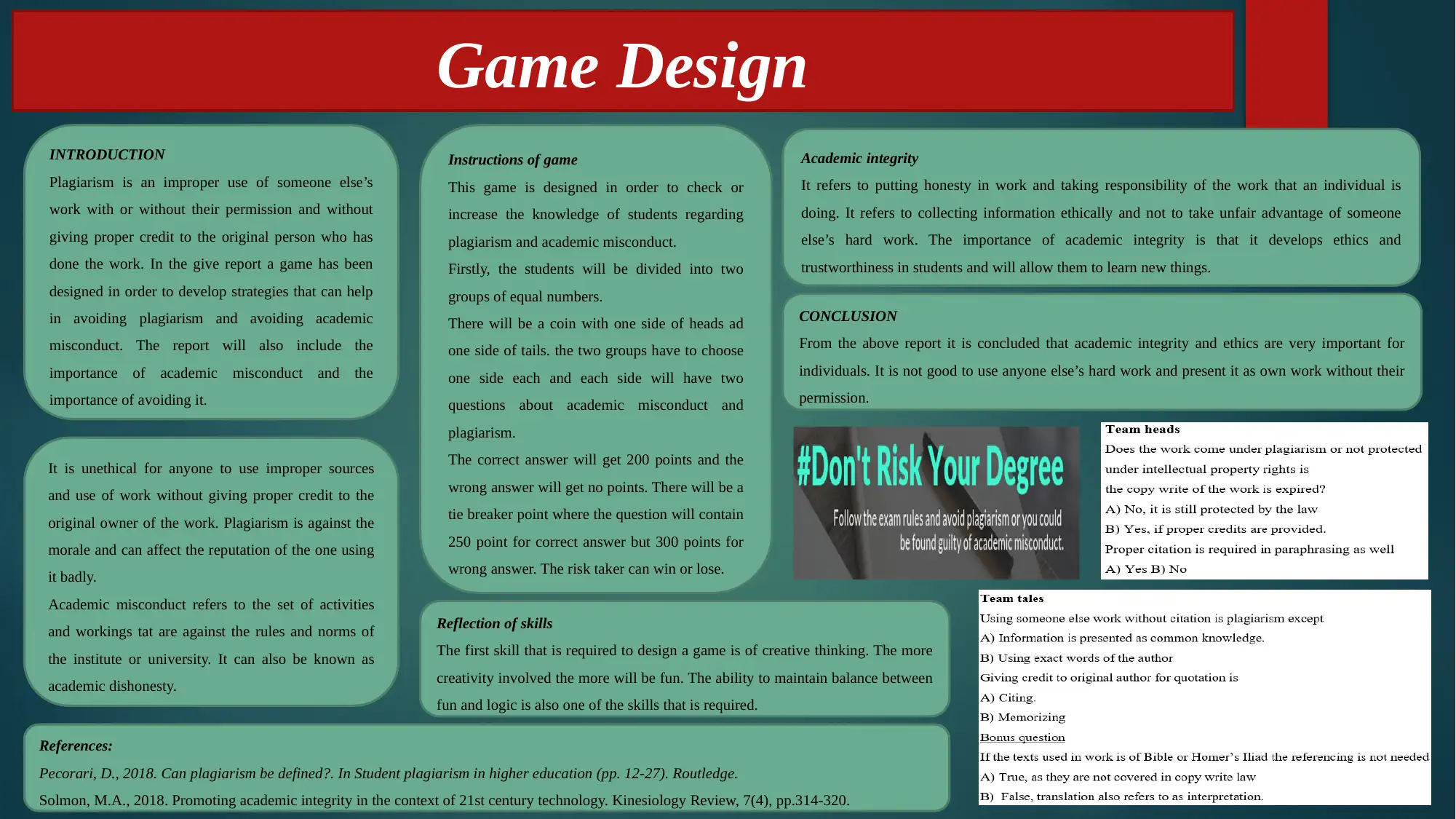Game Design Project: Strategies for Academic Integrity and Plagiarism
VerifiedAdded on 2022/11/24
|1
|480
|68
Project
AI Summary
This project involves designing a game to educate students on academic integrity, focusing on the importance of ethical behavior and the avoidance of plagiarism and academic misconduct. The game's mechanics involve dividing students into groups, using a coin flip to determine sides, and answering questions about plagiarism and misconduct. Correct answers earn points, while incorrect answers receive no points, with a tiebreaker offering risk-taking opportunities. The project aims to enhance creative thinking and balance fun with logic. The document also includes references from academic journals and outlines the significance of ethical practices in academic settings and the repercussions of plagiarism. This assignment is designed to promote trustworthy and ethical behavior among students.







![[object Object]](/_next/static/media/star-bottom.7253800d.svg)